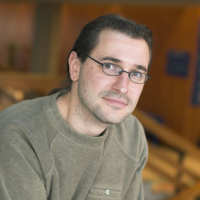Delft University of Technology (TUD) is the oldest and largest Technical University in the Netherlands. TUD offers 15 university-level teaching programmes, eight of which are unique in the Netherlands.
The Faculty of Civil Engineering and Geosciences houses the Department of Geoscience and Engineering, which integrates the fundamentals and practice of Geoscience research with water, hydrocarbons, geophysics, shallow sub-surface and environmental themes. The Department has over 25 years of leading role in reservoir-engineering themes, such as CO2-storage, geothermal-field development and CO2-EOR/EGR. This research is internationally recognized due to participation in organizations like EPA and IEA.
Their research is aimed at characterizing the shallow and deep subsurface with novel technologies; to explain and model the origins and properties of subsurface formations; to develop concepts and techniques to influence and control subsurface states and processes; to develop methods to assess, monitor or restore the natural subsurface environment; and to design methods for the responsible use of the subsurface for construction, transport and resource exploitation. Our key geoscience disciplines are geology and geophysics, while our key engineering disciplines are geomechanics and flow, transport and chemistry in porous media.
People
Dr Deyan Draganov
 Dr Draganov is a Associate Professor in the Section of Applied Geophysics and Petrophysics at the Department of Geoscience and Engineering. He specializes in seismic interferometry, both with passive and active sources, and at scales from ultrasonic to regional seismology; seismic attenuation; and monitoring of subsurface processes, including CO2 storage. He is Assistant Editor for the journal Geophysics since 2017 and served as Associate Editor since 2006. He has an extensive experience in research and project management in both academia and industry. His relevant projects to the proposal are “Seismic interferometry for high-resolution and cost-effective applications in regional seismology, hydrocarbon exploration, and art preservation (VIDI personal grant, 800 k€)” and “Sustainable mineral resources by utilizing new Exploration technologies (SmartExploration) (H2020)”. In the CATO programs he carried out “Laboratory investigations for CO2 storage monitoring”. Deyan was the leading researcher for the installation and operation in 2012 of a temporary network of seismic stations in Malargüe region, Mendoza, Argentina. He received the 2010 J. Clarence Karcher Award from the Society of Exploration Geophysicists (SEG), the 2005 Cagniard Award at the EAGE Annual Conference and organized an international workshop on Seismic Interferometry, at the 2015 EAGE Annual Conference.
Dr Draganov is a Associate Professor in the Section of Applied Geophysics and Petrophysics at the Department of Geoscience and Engineering. He specializes in seismic interferometry, both with passive and active sources, and at scales from ultrasonic to regional seismology; seismic attenuation; and monitoring of subsurface processes, including CO2 storage. He is Assistant Editor for the journal Geophysics since 2017 and served as Associate Editor since 2006. He has an extensive experience in research and project management in both academia and industry. His relevant projects to the proposal are “Seismic interferometry for high-resolution and cost-effective applications in regional seismology, hydrocarbon exploration, and art preservation (VIDI personal grant, 800 k€)” and “Sustainable mineral resources by utilizing new Exploration technologies (SmartExploration) (H2020)”. In the CATO programs he carried out “Laboratory investigations for CO2 storage monitoring”. Deyan was the leading researcher for the installation and operation in 2012 of a temporary network of seismic stations in Malargüe region, Mendoza, Argentina. He received the 2010 J. Clarence Karcher Award from the Society of Exploration Geophysicists (SEG), the 2005 Cagniard Award at the EAGE Annual Conference and organized an international workshop on Seismic Interferometry, at the 2015 EAGE Annual Conference.
Dr Auke Barnhoorn
Dr Barnhoon is an Associate Professor in the Section of Applied Geophysics and Petrophysics at the Department of Geoscience and Engineering. His main research interests are rock physics and rock mechanics and fracture-network development. He uses experimental facilities in Delft to study the anisotropic properties of rocks combining geomechanical and acoustic measurements and 3D imaging of the rock structures. His research has applications in, e.g., geothermal energy, CO2 storage and induced seismicity and shale-gas exploration. In 2007, he received a personal VENI-grant from NOW, the Dutch Organization of Scientific research. He is now a principal researcher for rock fracturing and characterization for geothermal energy, CO2-storage and application, hydrocarbon and other applied geoscience research topics. He is using the very large G&E infrastructure, i.e., the true-triaxial pressure device, the TerraTek press/cell and the borehole simulator. He is involved in a TKI-Upstream Gas project and multiple NWO projects, H2020 geothermal project SURE on “Novel Productivity Enhancement Concept for a Sustainable Utilization of a Geothermal Resource”, geothermal capacity building program Geocap between the Netherlands and Indonesia and an ISES PhD project on detecting the onset and characteristics of fracturing using acoustic signals.
Dr Karl-Heinz Wolf
Dr Wolf is an Associate Professor in the Section of Applied Geophysics and Petrophysics at the Department of Geoscience and Engineering and former Head of the Geoscience and Engineering Laboratories. His research portfolio includes CO2-storage, CO2-ECBM, CO2-EOR/EGR; shale-gas sorption and diffusion description and rock texture characterization/quantification for reservoir-engineering and rock-mechanics projects. He has about 36 years of experience in laboratory and field research on conventional reservoir-, coal- shale- and geothermal related research themes. All activities are associated to large environmental and sustainable themes as interrelated research programs and experimental set-ups for rock-fluid interaction and visualization of processes. He has been involved in more than 40 national and international research programs as (co-)founder, project coordinator and researcher. Furthermore, he organizes training for peers, such as, geothermal courses (EAGE) and laboratory summer schools. He is the co-founder and project leader of the large Dutch CCS-programmes CATO-1 and CATO-2; Recopol, co-founder of the Delft Geothermal Project and has supervised 17 PhD-students.


